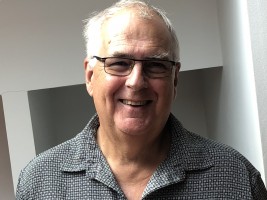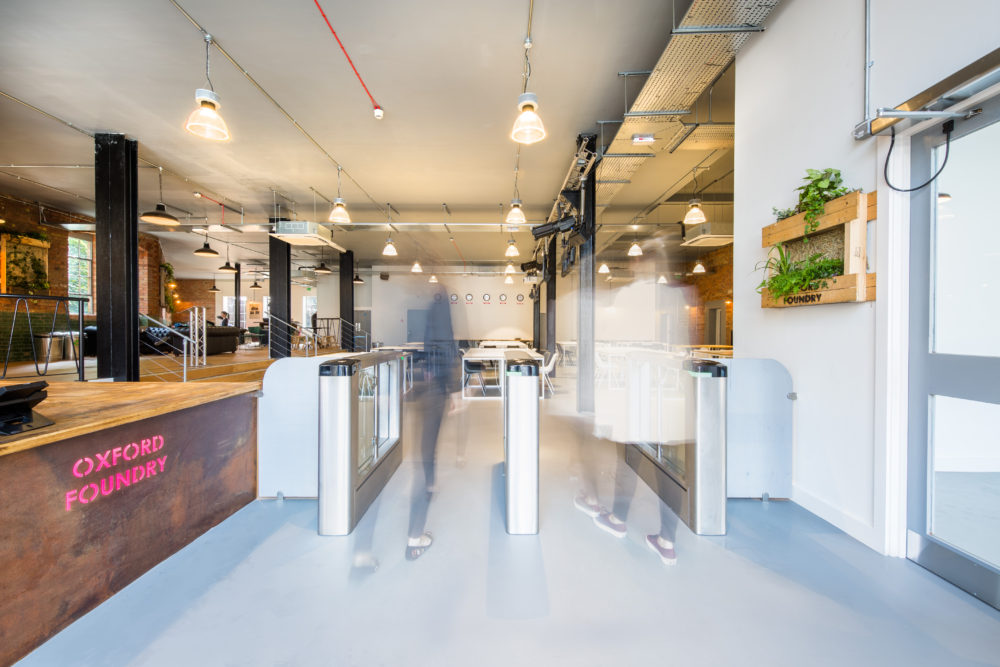
The Oxford Foundry. Pic: Oxford University
Covid-19: Oxford Foundry action plan helps tech ventures fight coronavirus challenges
Thirteen ventures based at The Oxford Foundry (OXFO) are now actively deployed in fighting the challenges of Covid-19 as part of an action plan launched by the university’s entrepreneur support groups to accelerate solutions to the problems caused by the pandemic. TechTribe Oxford spoke to some of the entrepreneurs about their work and how the plan is supporting them.
OXFO’s two-part plan is helping ventures in its portfolio who are responding to Covid-19 to rapidly scale up, and to help build future resilience by devising new solutions to challenges likely to arise from the pandemic. It covers four critical impact streams of healthcare, education, inclusive social engagement and mobility, and operations, logistics and supply chains. OXFO has convened a global network of judges, experts and mentors in each these areas, including Twitter co-founder Biz Stone, internet entrepreneur Reid Hoffman, former Burberry CEO Angela Ahrendts DBE and Amersi Foundation’s Mohamed Amersi.
iLoF (Intelligent Lab on Fiber) had developed a non-invasive way of stratifying patients for Alzheimer’s clinical trials, and is now building a stratification tool for Covid-19. It aims to reduce the number of nights – excluding those in ICU – each patient has to spend in hospital by up to 30 per cent.
Speaking about OXFO’s support, iLoF’s CEO and founder, Luís Valente, said, “They quickly offered to help by assisting us in finding the researchers we needed to contact, excellent mentors to keep us focused and on track, and even funding opportunities to allow us to fast track the impact we wanted to make. By significantly assisting us in handling the impact on our Covid-19 vertical, the Oxford Foundry is one of the main responsibilities for allowing us to, in parallel, do the social responsible thing without disregarding the other areas of our business.”
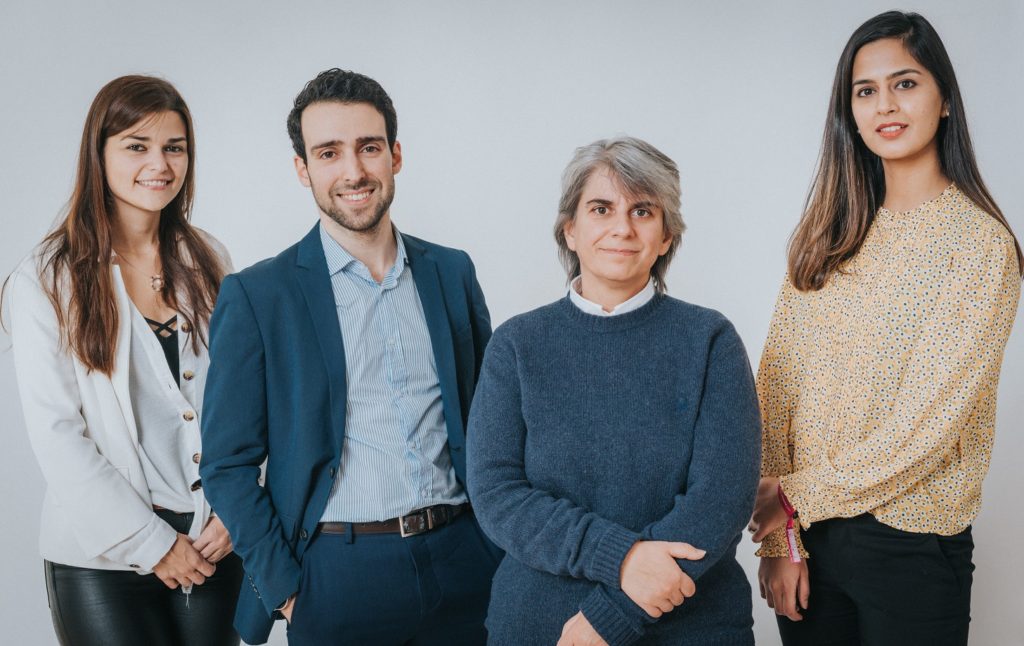
The iLoF team. Joana Paiva CTO, Luís Valente CEO, Paula Sampaio CSO, Mehak Mumtaz COO. Pic: iLoF
Infogrid already operates within the NHS and is using internet of things (IoT) technology to help blue chip businesses improve safety and client experiences. The company reckons to be saving the NHS ten thousand hours every year and expects recent deployments to double this. Chief executive William Cowell de Gruchy said that OXFO’s support has led to three direct offers of help, a spike in LinkedIn traffic and some useful introductions.
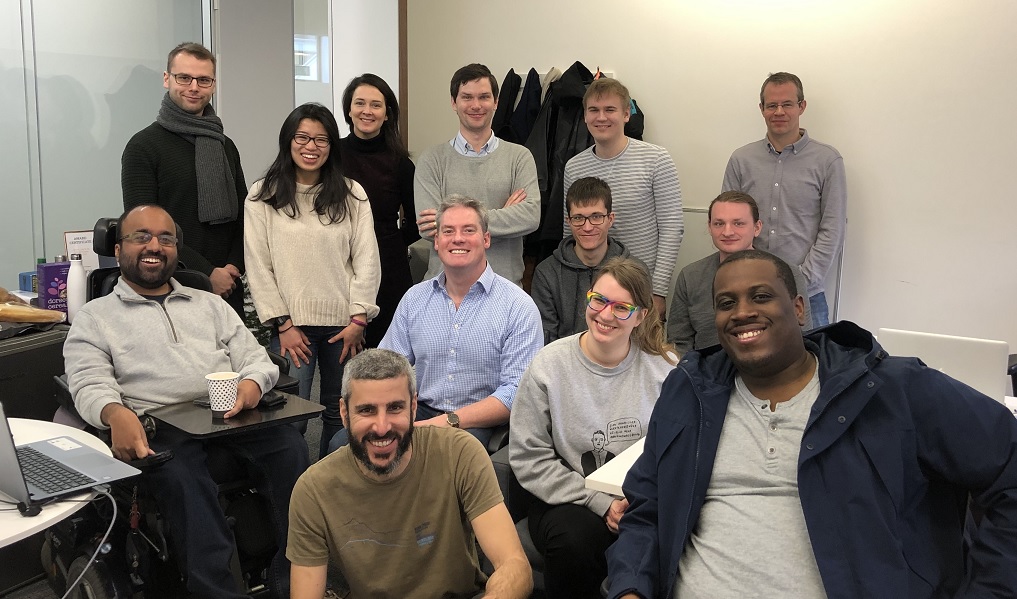
The Infogrid team. Pic: Infogrid
When the lockdown hit in March, the founders of Lanterne, which uses data to improve safety and economic development, abandoned their plans for a major launch of their product in Colombia and turned their skills to creating Crowdless. This free iOS and Android app helps people to see how crowded supermarkets are before they set out. The team built Crowdless in three days, launching it earlier this month, and it’s already attracted 20,000 downloads worldwide.
Lanterne co-founder Alex Barnes is part of the Oxford Foundry as a PhD student at the university and is impressed by how much Oxford Foundry has thrown its weight behind tackling the Covid-19 challenge: “Oxford Foundry made a Covid-19 action plan and asked every venture to tell them what they needed in terms of skills, and so on.” When Barnes submitted his request he was blown away by the “amazingly experienced and skilled people who came forward willing to help with mentorship to help propel the business.”
Berlin-based Myosotis’s platform myo connects care homes, care home residents and their families free of charge at a time where communication is more challenging than ever. Since Covid-19 took hold in the UK, myo has seen a huge surge in engagement, with 800% increase in usage amongst existing carers and families and 400 new families getting involved.
The firm’s UK managing director Richard Böckel said that the connection to OXFO has surpassed expectations and that the high-network culture there has enabled myo to become a key voice in the UK social care scene.

Myo team and patient access. Pics: (L) Dominik Tryba, (R) iStock.
Nye Health is now giving over 10 million patients across the UK the opportunity to speak with their GP – both practice and hospital GPs – through an encrypted NHS-compliant communications platform. Co-founder Alexander Finlayson, said that as well as helping to maintain the link between doctors and their patients, “we are building the capabilities to transform the way in which citizens access, navigate and engage with health and social care systems.”
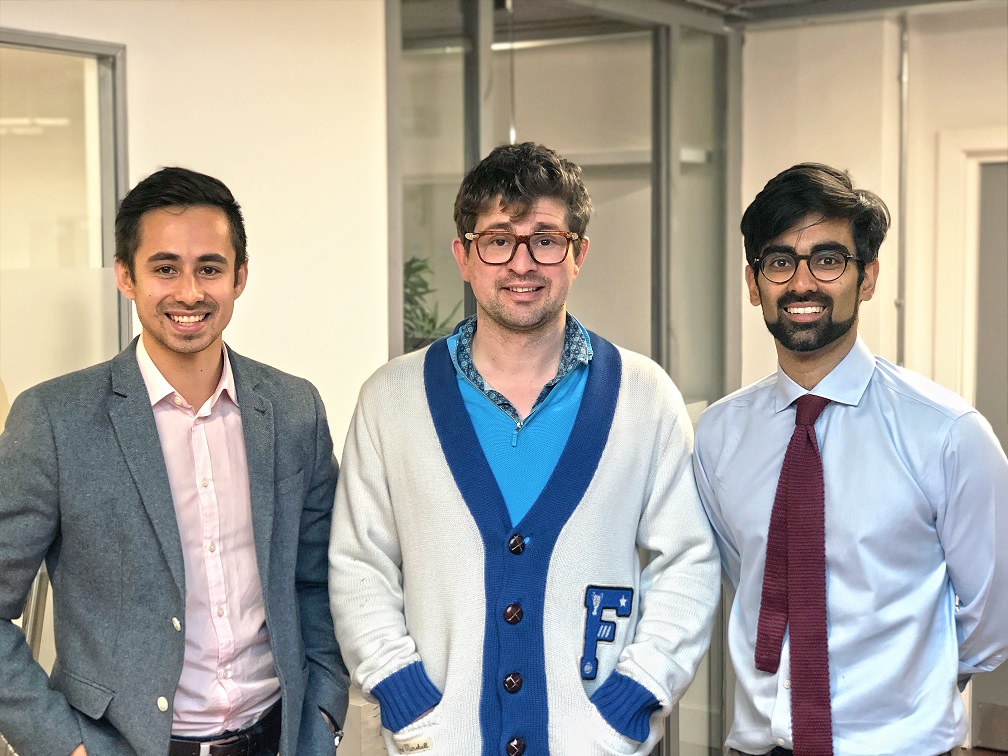
Nye Health founders, Chris Tan, Dr Alexander Finlayson and Dr Imran Mahmud. Pic: Nye Health
Albus Health has developed a small non-contact device that can automatically and continuously monitor a cough, respiratory rate and other symptoms at home to help experts understand disease progression, symptom severity, diagnosis of Covid-19 and identifying those who need care before it is an emergency.
Archangel Imaging is developing its award-winning AI cameras to offer automated temperature and fever detection in hospitals, government and the police.
Novoic is developing an app with support from DeepMind, NHS & Clifford Chance to screen for suspected Covid-19 based on cough sounds & medical data.
Oxwash has introduced contactless collections and enhanced sterilisation wash protocols to support Oxfordshire NHS hospitals and GP practices with their overwhelming laundry needs, as well as raising funds to offer 5,000 free washes to NHS workers and vulnerable individuals. Oxwash is now working with the NHS to see how they can support their vital services, and launder medical staff’s extra personal protective equipment (PPE).
SmashMedicine is working with universities to roll out its unique learning platform, free, to allow medical students, doctors & facilitators to work effectively & produce content.
Ufonia is developing its AI-telemedicine to support the backlog of clinical visits cancelled due to Covid-19.
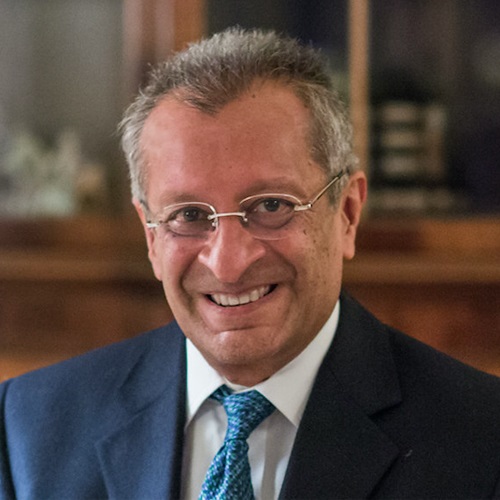
Mohamed Amersi. Pic; The Amersi Foundation.
Mohamed Amersi, advisor to the Oxford Foundry and Chair of the Amersi Foundation, said:
“Now is the time to put people before profit. Our goal is to relieve pressure on our vital services, save lives, and make sure the well-being, education and livelihoods of our populations remain supported. The Oxford Foundry is central in mobilising and directing talent towards these goals, from both within the University and outside. In these challenging times, the Foundry is a beacon of light and ultimately, when the pandemic will pass the learnings imparted by the Foundry will prevail and the world will be a better place as a result.”
OXFO is seeking volunteers to give their time and expertise to teams in areas such as technology (software developers, data engineer/scientist, AI expertise), business (marketing, sales, strategy, PR, operations), branding and design, engineering, finance, research, legal, and sector-specific knowledge like healthcare providers and scientists. Volunteer roles are open to everyone, both within and outside the university communities, and the registration deadline for volunteers is May 15 2020.
OXFO was set up in 2017 by the Saïd Business School, for the benefit of students and alumni of the University of Oxford. It aims to build a new generation of ventures that improves society and nurtures ethical leaders who put people and planet first. The network’s entrepreneurs and business leaders have committed to provide advice and resources to enable these to have maximum impact as soon as possible.
